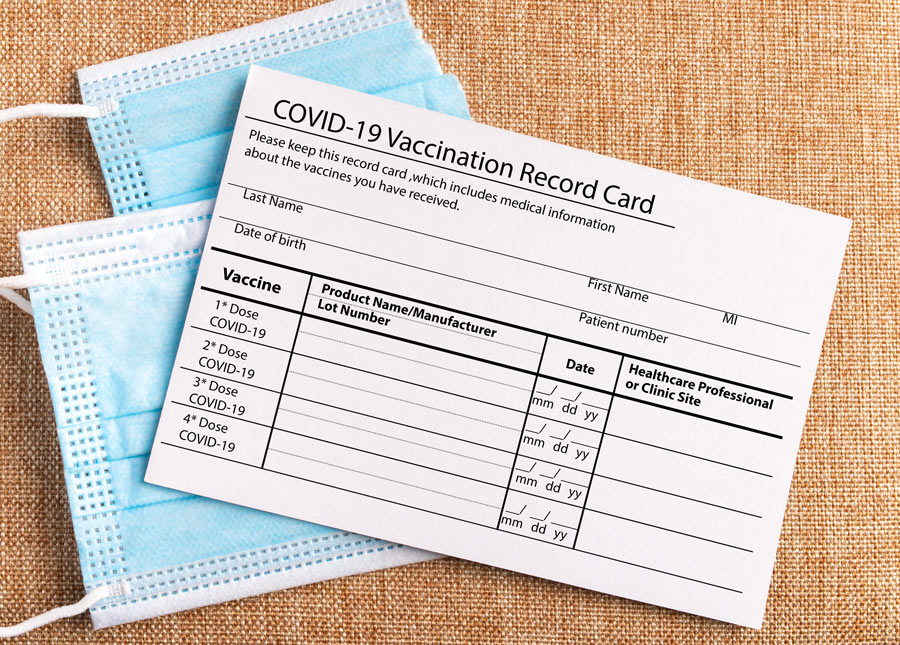
The order, which must be fully implemented by LEAs by Oct. 15, 2021, provides for no exceptions, even for individuals who have a medical contraindication to vaccination or who are otherwise unable to be vaccinated. Enforcement of this order has been left up to each LEA. This means that LEAs are responsible for tracking vaccine verifications, establishing testing protocols and addressing workers who refuse to comply with the order.
Although the order does not apply to members of school boards and county boards of education, the CDPH notes that vaccination against COVID-19 is the most effective means of preventing infection and the potential for subsequent transmission and outbreaks that could disrupt the ability for students to safely return to in-person learning. Boards can lead by example by following recommendations that all individuals who are eligible to be vaccinated do so.
- COVID-19 Vaccination Record Card (issued by the Department of Health and Human Services Centers for Disease Control and Prevention or WHO Yellow Card)
- Photo of a Vaccination Record Card as a separate document
- Photo of the client’s Vaccination Record Card stored on a phone or electronic device
- Documentation of COVID-19 vaccination from a health care provider
- Digital record that includes a QR code that when scanned by a SMART Health Card reader displays to the reader client name, date of birth, vaccine dates and vaccine type
- Documentation of vaccination from other contracted employers who follow these vaccination records guidelines and standards
No other form of documentation may be used for vaccine verification. If any one of these forms of evidence is presented by the school worker, the LEA should accept the evidence as proof that the worker has satisfied the vaccination requirements for purposes of this order, unless the LEA has knowledge that the documentation provided is not valid.
LEAs must also track vaccination verifications and maintain weekly testing records, which must be made available to local health officials upon request. Such records should otherwise remain confidential to protect the privacy of the employees.
The Families First Coronavirus Response Act (FFCRA) and the Coronavirus Aid, Relief, and Economic Security (CARES) Act both require health insurance plans cover COVID-19 diagnostic testing without cost-sharing, copays or deductibles. In addition, if the employer requires an employee to obtain a COVID-19 test (or vaccination), the employer must pay for the time it takes for the testing or vaccination, including travel time. Therefore, testing should be available to employees free of cost. This includes the cost of the test and the time it takes for testing or vaccination because such time would constitute “hours worked.”
- Scheduling of testing for unvaccinated employees
- Whether testing will be during work time and, if not, employee pay for testing
- Confidentiality and storage of vaccination records
- Time off from work for employees to obtain vaccination and LEA provision of vaccine clinics
- Alternatives to discipline for an employee’s failure to comply with the order
LEAs should also be aware that if an LEA seeks to expand the vaccination and testing requirements beyond what is required in the order (e.g., requiring vaccination and/or testing of represented employees who do not directly serve students), that decision is likely negotiable because it is not required by law and would impose a new term and condition of employment.
LEAs should provide their unions with notice of their intent to implement the order — and any decision to expand vaccination/testing requirements beyond the order’s mandates — sufficiently in advance of the Oct.15 deadline to allow the exclusive representative to request bargaining and for the parties to bargain impacts and effects.
For employees who do not comply with the order, LEAs should note that certificated and classified employees with permanent status may only be suspended without pay or dismissed for cause and only if the LEA follows all procedural requirements for discipline set forth in the Education Code, applicable collective bargaining agreements, and board policies and administrative regulations.